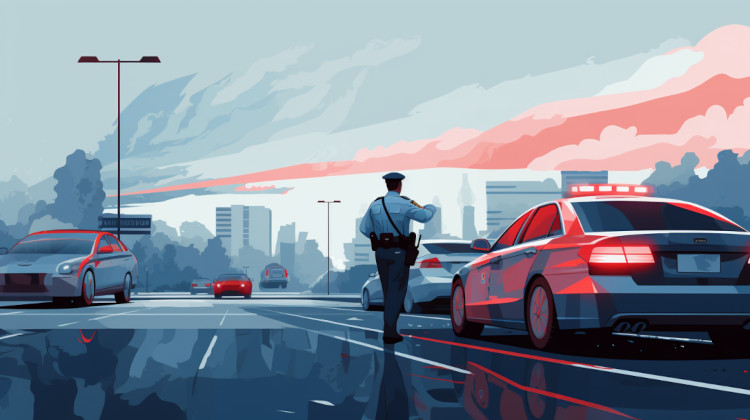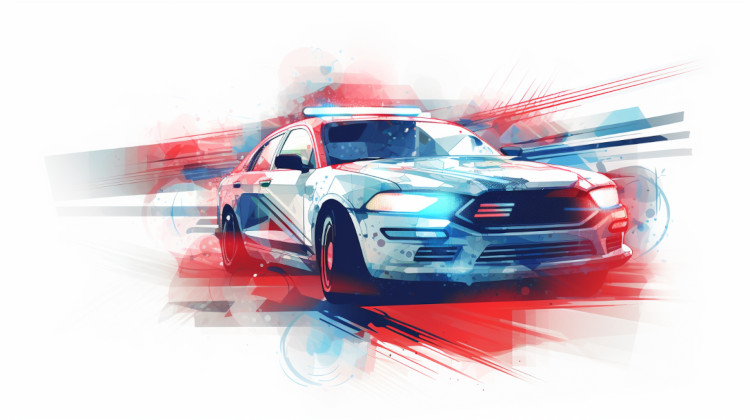Driving under the influence is never wise, no matter the substance. Operating heavy machinery while high is always risky — even if some people swear that pot makes them a better driver. And driving under the influence of cannabis is illegal across the US.
Law enforcement utilizes numerous methods to determine if someone is impaired while behind the wheel. One of their most trusted tools is the breathalyzer, typically associated with detecting alcohol intoxication.
So, if breathalyzers are so reliable at detecting alcohol, can a breathalyzer detect weed? Plenty are trying, and the landscape is evolving rapidly. However, with the changing legal and scientific terrain comes a lot of information for cannabis consumers – especially medical patients – to consider.
What is a Breathalyzer
Before diving into specifics, it's important to know what a breathalyzer is and how it typically works. A breathalyzer measures alcohol concentration in a person's breath. The process provides a rapid measure of impairment for cops to assess.
The device analyzes a person's breath sample created by blowing into the machine. Once a sample is provided, the breathalyzer determines the quantity of alcohol present. It detects any alcohol molecules, which produce an electrical current if present. The current is then converted into a reading known as blood alcohol concentration (BAC).
But… would that same process work for cannabis?
Can a Breathalyzer Detect THC?

Breathalyzers are a tried and true method of assessing alcohol impairment. However, the traditional breathalyzer was never intended to detect THC or cannabis. And despite the efforts to create a cannabis-specific model, it remains unreliable for detecting cannabinoids like THC, CBD, CBN, and THC-A (among others).
Advancements in technology are needed to develop THC-specific breathalyzers. Today, several have been introduced or remain in development. These devices have been billed as possible solutions to detect THC in breath samples. The process is believed to work like an alcohol breathalyzer, where breath samples detect THC byproducts or metabolites in provided samples. Other methods are also in development.
Still, nothing has come forward to change the landscape of THC testing. For years, reports have stated weed breathalyzers are coming. And while we likely will one day find some THC breathalyzer for weed, some plant nuances make assessment much more difficult than it is with alcohol.
Do Police Use Marijuana Breathalyzers?
Like weed legalization in America, the rules can frustratingly change depending on the jurisdiction. Today, the use of weed breathalyzers varies by jurisdiction and law enforcement branch.1 While some consider using them or other methods, others steer clear until something more reliable emerges.
For example, a current bill in Maryland, SB0676, would authorize the use of a detection device. However, noting that there is no equivalent to a breathalyzer, the bill would encourage tech companies to develop devices that help officers immediately detect cannabis intoxication signs. One proposed technology may scan your eyes to assess impairment.
Again, unlike alcohol impairment, proving someone is intoxicated from THC or any other cannabinoid remains difficult. Unlike alcohol impairment, where a 0.08% BAC is the generally accepted legal limit, THC impairment has no set standard. Similarly, impairment signs vary greatly, from obviously high to so subtle you can't tell. This level of varied reaction makes some wonder if on-the-spot impairment tech can do much better than an officer could do on their own.
Verification is another huge hurdle.2 Chances of false positives and negatives remain, especially considering that THC can stay in a person's system for days, weeks, or even months (long after the intoxicating effects have worn off). A reliable drug screening test would need to determine the presence in the moment of a stop or arrest rather than detecting THC consumed long beforehand.
THC impairment tech remains unrefined, and proving their effectiveness in court is anything but certain. As such, we're not seeing breathalyzers or any other impairment tech being used much at this time. There is hope that tech will emerge in time. However, with nothing proving overwhelmingly reliable right now, a solution could remain a long shot, despite what some reports may state.
Cannabis and DUI

Even though there isn't a widely used THC breathalyzer, you can still get a DUI from using cannabis.
Many states can and will charge or cite someone if any amount of THC is present in their system. Often, cannabis-related DUIs are handled like any other intoxicated driving charge. If found guilty, you can be subjected to similar consequences, with punishments escalating if you cause any accidents, damages, or bodily harm to anyone else.
Without a breathalyzer or other trusted in-the-moment measurement device, law enforcement agencies use various methods to assess THC intoxication levels. These methods include:
- Field sobriety tests,
- Calling in drug recognition experts (DREs),
- Blood tests,
- Urine tests.
Field sobriety tests work like they would with alcohol or other drug intoxication assessments. Once stopped, an officer will assess the person's physical and cognitive impairment, using various tests to gauge the person's mental and physical abilities.
DREs are officers trained in evaluating suspected drug-impaired individuals. Methods utilized include but are not limited to:
- Interviewing,
- Pulse exam,
- Eye exam,
- Divided attention psychophysical tests.
As mentioned above, proving someone was intoxicated on THC or any cannabinoid during an incident presents various legal challenges. Unlike alcohol or many other drugs, cannabis remains in the system for a prolonged period. THC can stay in the body for several weeks or months, making concentration levels difficult to assess.
Was a person intoxicated during the stop, or was THC previously present with the acute effects subsiding before any accidents or road stops? It's a difficult question that no THC breathalyzer has yet been able to prove conclusively.
Blood and urine tests find themselves in a similar position. Both options can detect THC or its metabolites, but neither can clearly determine if impairment occurred at the time of driving. Until a device can accurately assess intoxication during the incident, few (if any) prosecutors will likely use results from a breathalyzer or similar device. That said, impairment tests and drug screenings have been used in trials for years.
As such, we advise people to avoid driving for some time after consuming cannabis. Law enforcement may lack reliable breathalyzers, but they still consider cannabis intoxication the same as driving under the influence of body and mind-altering substances.
Do yourself and everyone else on the road a favor: wait at least two to five hours before operating any vehicles – longer if you used edibles. Let the cannabis peak and pass through your system.
For now, avoid a potential legal mess and ensure everyone on the road is safe. Consume and operate your vehicles responsibly.
- DeGregorio MW, Wurz GT, Montoya E, Kao CJ. A comprehensive breath test that confirms recent use of inhaled cannabis within the impairment window. Scientific Reports. 2021;11(1):22776. doi:https://doi.org/10.1038/s41598-021-02137-x ↩︎
- Jeerage KM, Beuning CN, Friss AJ, Bidwell LC, Lovestead TM. THC in breath aerosols collected with an impaction filter device before and after legal-market product inhalation-a pilot study. J Breath Res. 2023;17(3):037103. Published 2023 May 22. doi:10.1088/1752-7163/acd410 ↩︎
The information in this article and any included images or charts are for educational purposes only. This information is neither a substitute for, nor does it replace, professional legal advice or medical advice, diagnosis, or treatment. If you have any concerns or questions about laws, regulations, or your health, you should always consult with an attorney, physician or other licensed professional.




